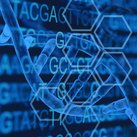Course Description
This course, offered in two parts of three days each, focuses on projects in the life sciences industry and the clinical trial setting, with the aim of bringing new treatments to patients successfully.
These projects can range from early pre-clinical projects, to managing toxicology and entry into human studies, large phase III clinical trials and post-marketing studies. All of them share a high complexity and require professional management at every level by experienced project managers who know the processes to reach the deliverables, can deal with multiple stakeholders simultaneously and deliver projects successfully often under a tight given budget and timelines.
This highly interactive workshop setting includes a mixture of instructor led training and group work on real life cases. All templates and tools for planning, executing, managing & controlling as well as closing a project will be developed. In addition participants have the opportunity to discuss and work on an own project, identify its challenges and develop solutions or work on a model project provided by the course instructors.
Course Program
This course consists of two parts of three days each. A variety of teaching methods including lectures, exercises and interactive group discussions will be applied. A mandatory home assignment will complete the learning portfolio.
The course covers the following topics:
- Discussion of all project phases (initiation, planning, execution, monitoring & controlling, closure) and knowledge areas
- Management of scope, time, cost, quality, team, communication, risk, procurement and stakeholders
- Development of a project plan, starting from a project charter
- Creation of documents and worksheets for managing clinical trials or other projects relating to pharmaceutical development
- Discussion of Key Performance Indicators (KPIs) for project status
- Discussion of Corrective Action Preventive Action (CAPAs) to prevent the project from getting off track
Learning Outcomes
At the end of the course, participants will
- To develop leadership skills for project management and for building high performance project teams'
- Understand the tasks and responsibilities of a project manager
- Know the major project documents required for conducting projects successfully
- Be acquainted with the tools to manage all knowledge areas throughout all project phases
- Build, lead and manage effective project teams
- Be familiar with the interactions needed with different project stakeholders
- Have a series of templates and tools at hand
- Be able to use and/or adapt these templates and tools within individual projects
- Know how to practically apply different project management standards to all kinds of pharmaceutical development projects
Course Instructors
Daniel Gau is an experienced project management professional in the life sciences sector. He is the founder of Beyond Science Consulting, where he provides training, coaching, and support for company building in life sciences. Daniel has held significant roles in product development and management at companies like Eisbach Bio and 2 Bridge. He has over 20 years of experience in academia, venture capital, start-ups and large corporations. His extensive background includes translating innovation towards relevant business inflection points, making him a valuable instructor for project management in the life sciences industry.
Nancy Van Osselaer is an experienced consultant in life sciences and healthcare, with over 25 years in drug development. She founded Why2What, a consultancy focusing on strategic advice and implementation for early-stage development programs. Nancy has held significant roles at Galapagos, UCB, and Johnson & Johnson, contributing to drug registration files and development programs across various therapeutic areas. Her expertise includes pre-clinical studies, investigational new drug applications,
management, fundraising, and negotiation. She is passionate about turning innovative ideas into impactful, valuable outcomes.
Target Audience
Specialists responsible for projects in the pharmaceutical industry, hospital or academic setting or regulatory authority. The course not only provides the tools and fundamentals for successful project management but also illustrates real life cases. Experienced managers are encouraged to bring their current issues so that solutions can be compiled during the course.
Course Language
English
Course Credits
The course including assessment provides 4 ECTS and a Certificate of Attendance by the University of Basel will be issued.
Course Date and Venue
Part 1: 16–18. March 2026
Part 2: 20–22. April 2026
Basel
Course Fee
Course fee including electronic course material, templates, and coffee breaks is CHF 3000.
Deadline for registration: 12.03.2026.
Cancellation Policy
Refund of fee will be given if cancellation is received in written format (ecpm(at)unibas.ch) before the deadline for registration, after this date no refund can be given.
Deadline for Registration
12.03.2026
Course Organizer
This course is organized by the European Center of Pharmaceutical Medicine.






